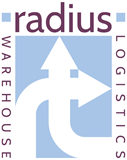The Guide to Road Haulage Permits
Road freight continues to be one of the most popular forms of freight movement – both nationally and internationally. We’ve spoken about its many benefits before in this blog and as a well-established freight forwarder, it is a service that we promote to many of our clients. However, if you’ve never shipped anything by road before, the number of different permits needed to do so legally can be confusing. By working with a freight forwarder, we work with fully insured and legal companies who have already covered all of these avenues. However, this doesn’t stop the flood of questions coming in about necessary road haulage permits.
In this guide, we’ll go through the main permits needed for international journeys.
Permits for International Journeys from the UK
As a general rule of thumb, road haulage permits are needed for all vehicles that have a gross weight rating above 3.5 tonnes. For all trips, you need a vehicle operator license. This allows you to transport goods owned by you and those owned by other people. It covers shipments throughout the UK and through to other countries too. There are 3 types of operators licence:
- Standard National License.
- Standard International License.
- Restricted License.
In order to operate an international road haulage business, your drivers will need to have a Standard International License. This allows them to carry their own goods and those of other peoples in the UK and internationally.
Further on from these, the type of permit needed to move internationally depends largely on the country you need to travel to or through.
Countries Within the European Union
To make a journey through the EU, Liechtenstein, Norway, or Sweden, you will need a UK Licence for the Community. A single permit will allow you to carry out a limited number of ‘haulage jobs’ within any EU country. It can also be used to haul goods between 2 countries within the EU.
This permit replaces the original EU Community License and has come into play since Brexit. To apply for one, your driver needs to have:
- A Standard International Operator Licence.
They can be used in:
- Austria.
- Belgium.
- Bulgaria.
- Croatia.
- Republic of Cyprus.
- Czech Republic.
- Denmark.
- Estonia.
- Finland.
- France.
- Germany.
- Greece.
- Hungary.
- Ireland.
- Italy.
- Latvia.
- Liechtenstein.
- Lithuania.
- Luxembourg.
- Malta.
- Netherlands.
- Norway.
- Poland.
- Portugal.
- Romania.
- Slovakia.
- Slovenia.
- Spain.
- Sweden.
- Switzerland.
You must ensure that a certified copy of the license is carried around in the relevant vehicle during freight movements. This will be required by relevant enforcement offices if, and when, checks are made.
Bilateral Road Haulage
If you need to travel through Turkey or within Ukraine in a Euro III or Euro IV vehicle, you will need to apply for a Bilateral Road Haulage permit. This permit also applies to the following countries where UK agreements have been established:
- Belarus.
- Georgia.
- Kazakhstan.
- Morocco.
- Russia.
- Tunisia.
These single-journey permits are issued depending on the size of your freight vehicle and what goods are being transported. They can only be used for 1 vehicle at a time and there are special requirements for entering Morocco within 15 days of the expiry date.
During movement, you must have a copy of the permit in the vehicle and will be required to show it at all relevant borders. Some Bilateral Agreements will require you to pay local taxes, depending on the country you are in.
ECMT International Road Haulage Permit
If you need to travel through:
- Armenia.
- Azerbaijan.
- Bosnia.
- Herzegovina.
- Belarus.
- Georgia.
- Kazakhstan.
- Morocco.
- Russia.
- Tunisia.
- Turkey or
- Ukraine.
You will need to apply for a European Conference of Ministers of Transport (ECMT) international road haulage permit.
ECMT permits cannot be used to move through ECMT countries to others that are not covered by this permit. They are also not valid for cabotage shipments. Drivers need to return to the UK after every third journey. Depending on the type of ECMT permit, you will either be able to make unlimited journeys within a calendar year or a 30 day period. The original permit must be carried at all times and will be stamped at checkpoints and borders throughout your journey.
More information about ECMT permits can be found on the .gov website here.
No Permit Countries
Several countries do not require you to carry a license to travel or through them. These include:
- Albania.
- Moldova.
- Montenegro.
- North Macedonia.
- Serbia.
- Turkey.
- Ukraine.
Benefits of Working With a Freight Forwarder
International shipping comes with a host of specialist requirements. Steeped in legislation and international laws, it’s important that you understand the full scope of any movement before you get started. Road haulage permits have changed in recent years, in line with the UK leaving the EU. This has meant that the documentation originally gained by many haulage companies has become obsolete.
As a freight forwarder, it is our job to stay on top of all recent developments and changes. We have built up a strong bank of contacts over the years. This allows us to work with the best companies, bringing you the lowest rates and most competitive delivery time scales. Road freight is one of our specialities – both within the UK and internationally.
If you are looking to send freight or cargo by road and want to work with a respectable, established and specialist company, the Radius Warehouse and Logistic Services team are here. Get in contact and let’s find the smoothest route to get your goods to their end destination quickly and safely.



